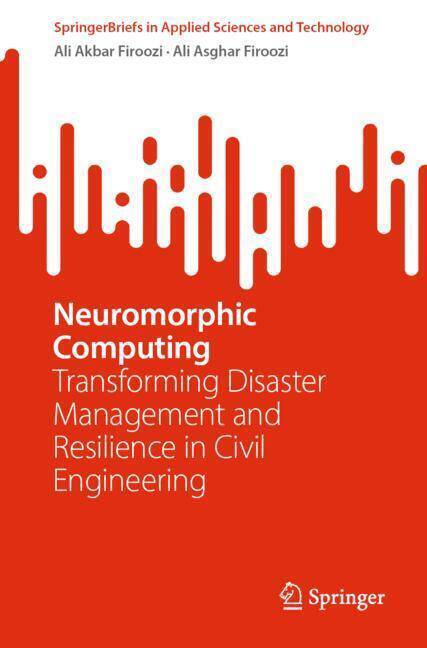
- Afhalen na 1 uur in een winkel met voorraad
- Gratis thuislevering in België vanaf € 30
- Ruim aanbod met 7 miljoen producten
- Afhalen na 1 uur in een winkel met voorraad
- Gratis thuislevering in België vanaf € 30
- Ruim aanbod met 7 miljoen producten
Neuromorphic Computing
Transforming Disaster Management and Resilience in Civil Engineering
Ali Akbar Firoozi, Ali Asghar FirooziOmschrijving
This book delves into the transformative potential of neuromorphic computing within the field of civil engineering, specifically focusing on its application to disaster management. With the increasing frequency and severity of natural disasters, traditional disaster management systems face significant challenges in prediction accuracy, response time, and effective resource allocation. Neuromorphic computing, inspired by the neural processes of the human brain, offers a revolutionary approach to addressing these challenges. Through an in-depth exploration, this book outlines the theoretical foundations of neuromorphic computing, its integration into smart infrastructure, and the development of advanced predictive models for natural disasters such as earthquakes, floods, and urban fires. Additionally, it examines the technical, ethical, and social considerations inherent in deploying these technologies, alongside a vision for their future development. The convergence of neuromorphic computing and civil engineering heralds a new era of enhanced resilience, where more informed, rapid, and effective disaster management strategies are not just a possibility but a reality. The book contributes to the discourse on leveraging cutting-edge computing technologies to foster safer, more resilient communities in the face of natural calamities.
Specificaties
Betrokkenen
- Auteur(s):
- Uitgeverij:
Inhoud
- Aantal bladzijden:
- 90
- Taal:
- Engels
- Reeks:
Eigenschappen
- Productcode (EAN):
- 9783031655487
- Verschijningsdatum:
- 27/07/2024
- Uitvoering:
- Paperback
- Formaat:
- Trade paperback (VS)
- Afmetingen:
- 150 mm x 226 mm
- Gewicht:
- 158 g

Alleen bij Standaard Boekhandel
Beoordelingen
We publiceren alleen reviews die voldoen aan de voorwaarden voor reviews. Bekijk onze voorwaarden voor reviews.











